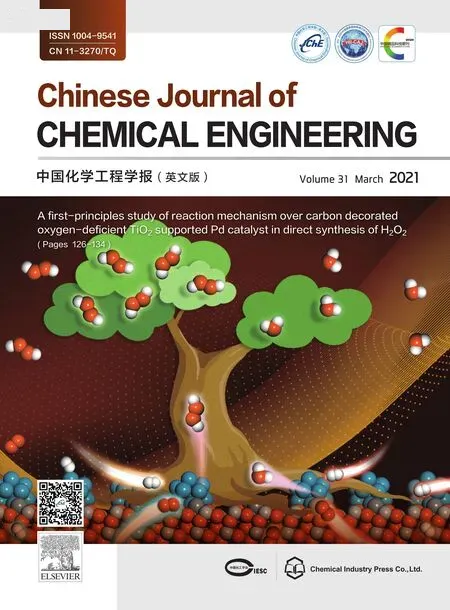Preface to special issue on frontiers of chemical engineering thermodynamics
‘‘Thermodynamicsis the only physical theory of universal content concerning which I am convinced that,within the framework of the applicability of its basic concepts,it will never be overthrown.”
—Albert Einstein
Chemical Engineering plays an essential role in modern society.It has been used to produce a wide variety of important materials,for example,the plastic drinking-water bottles,the jet fuels for transoceanic flights,and raw materials for assembling CPUs.Chemical Engineering is also on the frontline to manufacture massive masks,gloves,testing kits,and vaccines to fight against COVID-19 globally.
Chemical Engineering is a subject to use principles of chemistry,physics,mathematics and economics to efficiently use,produce,transform and transport chemicals,materials and energy.Traditionally,process intensification mainly relies on the continuous upshift of temperature,pressure and stirring speed.In recent decades,material innovations have resulted in numerous advanced technologies in Chemical Engineering,where using materials with large interfaces is the main measure to intensify process.Application of advanced materials has witnessed successful stories including but not limited to catalysis,separation,diagnosis,etc.,and the development has entered into a new interdisciplinary era of material science,chemistry,and chemical engineering with mesoscale as a typical characterization.
Thermodynamics is one of the essential roots of Chemical Engineering.It provides fundamental principles for developing a chemical engineering process.It can also be used to determine if a separation might happen or whether a reaction could occur.Molecular thermodynamics in Chemical Engineering has been advanced significantly and identified as one of the most effective tools.Together with computational thermodynamics,it has already resulted in a ‘‘revolution”in conventional chemical industries.However,this powerful theoretical tool is powerless for cutting-edge technologies.The main reasons are:(1) the functional fluids themselves are complex with heterogeneous microstructures and intricate interactions;(2) the fluids are attached to the solid surfaces with varying roughness,electrostatic effects,chemical heterogeneities,etc.at the mesoscale (2–50 nm).This results in asymmetric mesoscopic interfacial interactions,which is far beyond the scope of current molecular thermodynamics,i.e.,the isotropic fluids in the bulk phase without contributions of the solid surface.Thorough development of molecular thermodynamics is clearly needed to promote fundamental understanding and future technology development.
The development of molecular thermodynamics is essentially a tripod:experiment,simulation,and modeling,combined with their mutual interactions.This special issue of the Chinese Journal of Chemical Engineering covers some of the recent achievements of molecular thermodynamics in Chemical Engineering.It provides advanced researches for each component of the tripod from fundamental theories and experimental studies to process development and assessment.The studies cover liquid and solid materials in the areas of catalysis,electrochemistry,pharmaceuticals,membranes,etc.,and are developing towards the applications of CO2capture,energy storage,energy savings,environment protection,and novel pharmaceutical formulations.This special issue provides a vista of how molecular thermodynamics in Chemical Engineering meets the needs of modern technological development.

Xiaoyan Ji
Lule? University of Technology,Lule?,Sweden
E-mail address:xiaoyan.ji@ltu.se

Yuanhui Ji
Southeast University,Nanjing,PR China E-mail address:yuanhui.ji@seu.edu.cn

Xiaohua Lu
Nanjing Tech University,Nanjing,PR China
E-mail address:xhlu@njtech.edu.cn
 Chinese Journal of Chemical Engineering2021年3期
Chinese Journal of Chemical Engineering2021年3期
- Chinese Journal of Chemical Engineering的其它文章
- Machine learning for molecular thermodynamics
- Molecular simulations of charged complex fluids:A review
- Thermodynamic analysis and modification of Gibbs–Thomson equation for melting point depression of metal nanoparticles
- Estimating Hansen solubility parameters of organic pigments by group contribution methods
- Effect of dimethyl carbonate on the behavior of water confined in carbon nanotube
- Prediction and verification of heat capacities for pure ionic liquids
